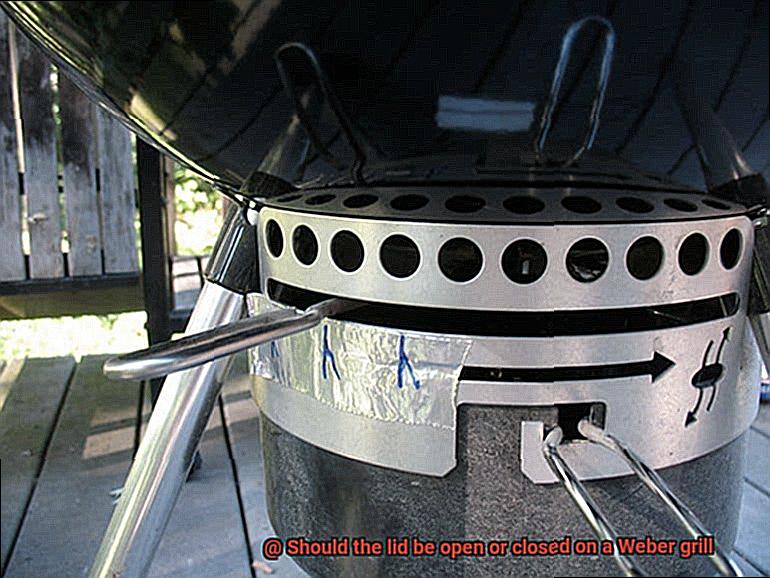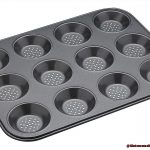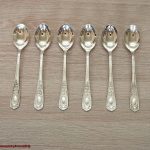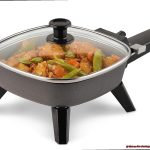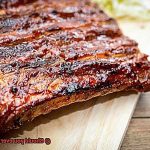Summer has arrived and it’s time to get your Weber grill ready for some serious barbecuing. But before you start flipping burgers and sizzling steaks, there’s one question that you need to answer – should the lid be open or closed? It’s a debate that has raged on for years among backyard grillers, with no clear consensus in sight. Some swear by keeping the lid closed to achieve a smoky flavor, while others insist on an open lid for even cooking. So which side are you on?
In this blog post, we’ll dive deep into the science of grilling with a Weber and reveal whether you should keep the lid open or closed. We’ll give you insider tips on how the lid affects the temperature of your grill, when to open it up, and how to achieve perfect results every time. Whether you’re a seasoned grill master or just starting out, we’ve got everything you need to know.
By the end of this post, you’ll be able to impress your friends and family with perfectly grilled meats and vegetables every time. So sit back, relax, and get ready to become a pro griller with our expert advice. Let’s fire up that Weber.
Contents
What Is a Weber Grill?
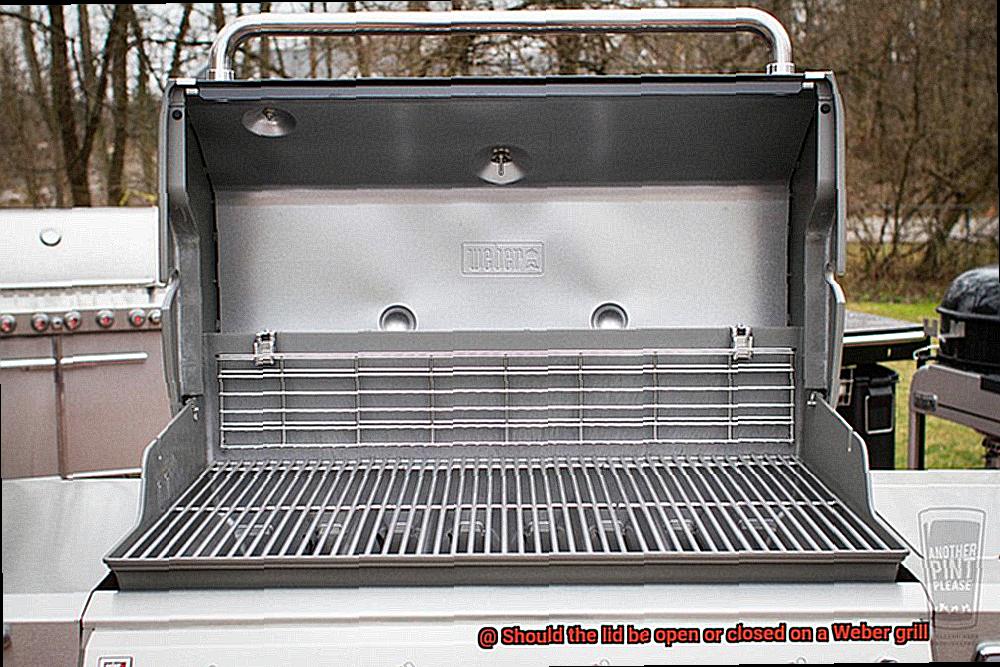
If you’re in the market for a quality grill that’s guaranteed to deliver mouth-watering results, look no further than the Weber grill. Founded in 1952 by George Stephen, this iconic brand has become synonymous with durability, versatility, and above all else, incredible flavor.
One of the standout features of the Weber grill is its lid. Available in both charcoal and gas versions, the dome-shaped lid is essential for trapping heat and smoke, ensuring that your food cooks evenly and thoroughly. But when it comes to grilling with a Weber, should you keep the lid open or closed?
The answer depends on what you’re cooking. If you’re whipping up quick-cooking items like burgers or steaks that require high heat, it’s best to leave the lid open. This allows excess heat to escape, preventing your food from becoming overcooked or burnt. Plus, with the lid open, you can easily monitor your food and prevent flare-ups from dripping fat.
On the other hand, if you’re cooking something that requires a lower heat and longer cooking time, like ribs or brisket, close that lid. Keeping the lid shut ensures even heat distribution and smoke circulation throughout the cooking chamber, resulting in tender and juicy meats.
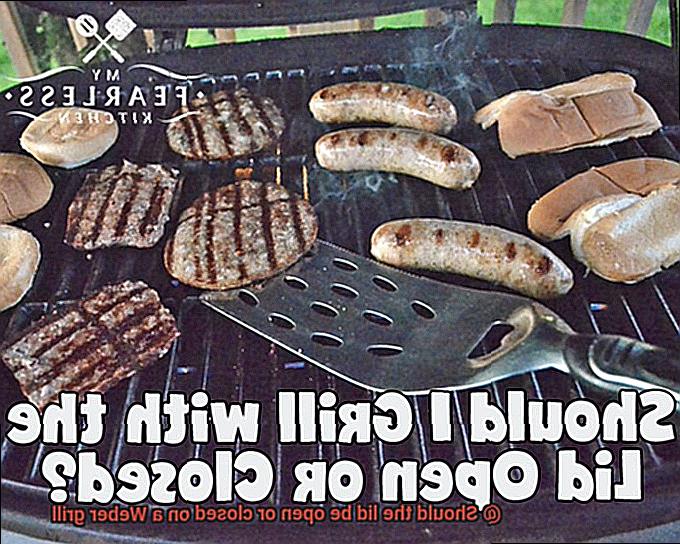
But the Weber grill isn’t just for carnivores. With the right accessories like a pizza stone or vegetable basket, you can use your Weber to cook a variety of foods – from grilled veggies to homemade pizza – making it a versatile tool for any home chef.
Factors to Consider When Deciding Whether to Keep the Lid Open or Closed
As a grill master, you know that achieving the perfect barbecue flavor requires attention to detail. One of the key factors to consider when grilling on a Weber grill is whether to keep the lid open or closed. While there’s no one-size-fits-all answer, there are several factors to take into account.
Firstly, consider what you’re cooking. If it’s something that requires direct heat, like burgers or vegetables, keeping the lid open allows for better airflow and prevents excess smokiness or char. But if you’re grilling something that requires indirect heat, like a whole chicken or roast, keeping the lid closed creates a convection effect that helps cook it evenly while retaining moisture and flavor.
Another crucial factor is the temperature of your grill. If it’s not hot enough, keeping the lid open can help increase the temperature and speed up cooking. However, if your grill is already at the desired temperature, keeping the lid closed maintains it and ensures even cooking.
Wind conditions also play a role in this decision. On windy days, keeping the lid closed prevents flare-ups and keeps flames from getting too high. On calmer days, leaving the lid open can prevent overheating and allow for better control over the cooking process.
Finally, personal preference matters too. Some grillers prefer to keep the lid open so they can check and adjust as needed, while others prefer to close it and let it work its magic without constant monitoring.
Keeping the Lid Open on a Weber Grill
Let’s explore the benefits of both approaches to help you achieve the perfect BBQ every time.
When it comes to preventing flare-ups, keeping the lid open is a game-changer. When fat drippings from the food hit the hot coals or burners and ignite, flames shoot up towards the food causing a potential fire hazard. By keeping the lid open, excess heat and smoke can escape from the grill, reducing the risk of flare-ups. This way, your food cooks evenly without accumulating grease and potentially causing a fire.
Regulating the temperature of the grill is crucial in achieving perfectly cooked BBQ. If you have a lot of food on the grill or if it is particularly thick, keeping the lid closed can cause the temperature to rise too quickly, leading to burnt food. However, keeping the lid open allows some of the heat to escape, preventing your food from burning.
Another advantage of keeping the lid open is that it helps infuse your food with smoky flavor. Smoke is essential for grilling, as it adds depth and complexity to your dishes. By leaving the lid open, you allow more smoke to circulate around your food, giving it that delicious smoky flavor you crave.
However, there are times when keeping the lid closed is necessary. If you are trying to cook something that requires high heat, such as a steak or a burger, keeping the lid closed will help retain that heat and cook your food more evenly. Additionally, if you are using indirect heat to cook something for an extended period, such as a brisket or a pork shoulder, keeping the lid closed will help maintain a consistent temperature inside the grill.
Keeping the Lid Closed on a Weber Grill
It’s like a conductor leading an orchestra, bringing all the different flavors together in perfect harmony. Let’s delve into why keeping the lid closed on a Weber grill is so important.
Firstly, closing the lid helps to maintain a consistent temperature inside the grill. This is essential for even cooking of your food. By trapping in heat and smoke, the lid creates an oven-like environment that ensures your food is cooked evenly and thoroughly. No more worrying about hot spots or undercooked meat.
Secondly, keeping the lid closed can help reduce flare-ups. We all know how annoying it can be when fat or juices from our food drip down onto the flames, causing them to flare up and burn our delicious BBQ. With the lid closed, you can limit the amount of oxygen that reaches the flames, preventing flare-ups from occurring and ensuring your food is cooked to perfection.
But wait, there’s more. Another fantastic benefit of keeping the lid closed is that it helps infuse your food with smoky flavor. When smoke from wood chips or charcoal circulates around your food, it imparts a delicious smoky flavor that is unique to outdoor grilling. By keeping the lid closed, you can ensure that your food is infused with as much smoky flavor as possible.
Benefits of Keeping the Lid Open on a Weber Grill
Grilling on a Weber grill is an art form, and one of the most debated topics is whether to keep the lid open or closed. While both options have their advantages, there are some unique benefits to keeping the lid open that can make a significant difference in your grilling experience.
Firstly, keeping the lid open allows for better air circulation and ventilation, creating a more even cooking environment. This is especially useful when grilling fatty meats or utilizing wood chips for smoking. The open lid prevents the buildup of smoke and heat that can lead to uneven cooking and charred meat, resulting in perfectly grilled food every time.
Another great advantage of keeping the lid open is that it provides easy access to your food. With the lid up, you can easily flip or move your food around without having to lift the lid constantly. This is particularly helpful when grilling larger cuts of meat or cooking multiple items at once, making it easier to check on your food without losing heat.
Keeping the lid open also helps to prevent flare-ups caused by fat dripping onto hot coals. This can cause flames to shoot up and burn your food. By keeping the lid open, excess fat can evaporate into the air, creating a safer cooking environment and preventing charred burgers or steaks.
Lastly, keeping the lid up creates a more social atmosphere while grilling. It allows you to chat with guests or enjoy the scenery while still tending to your grill. This relaxed and communal environment is perfect for family and friend gatherings, enhancing the overall grilling experience.
Benefits of Keeping the Lid Closed on a Weber Grill
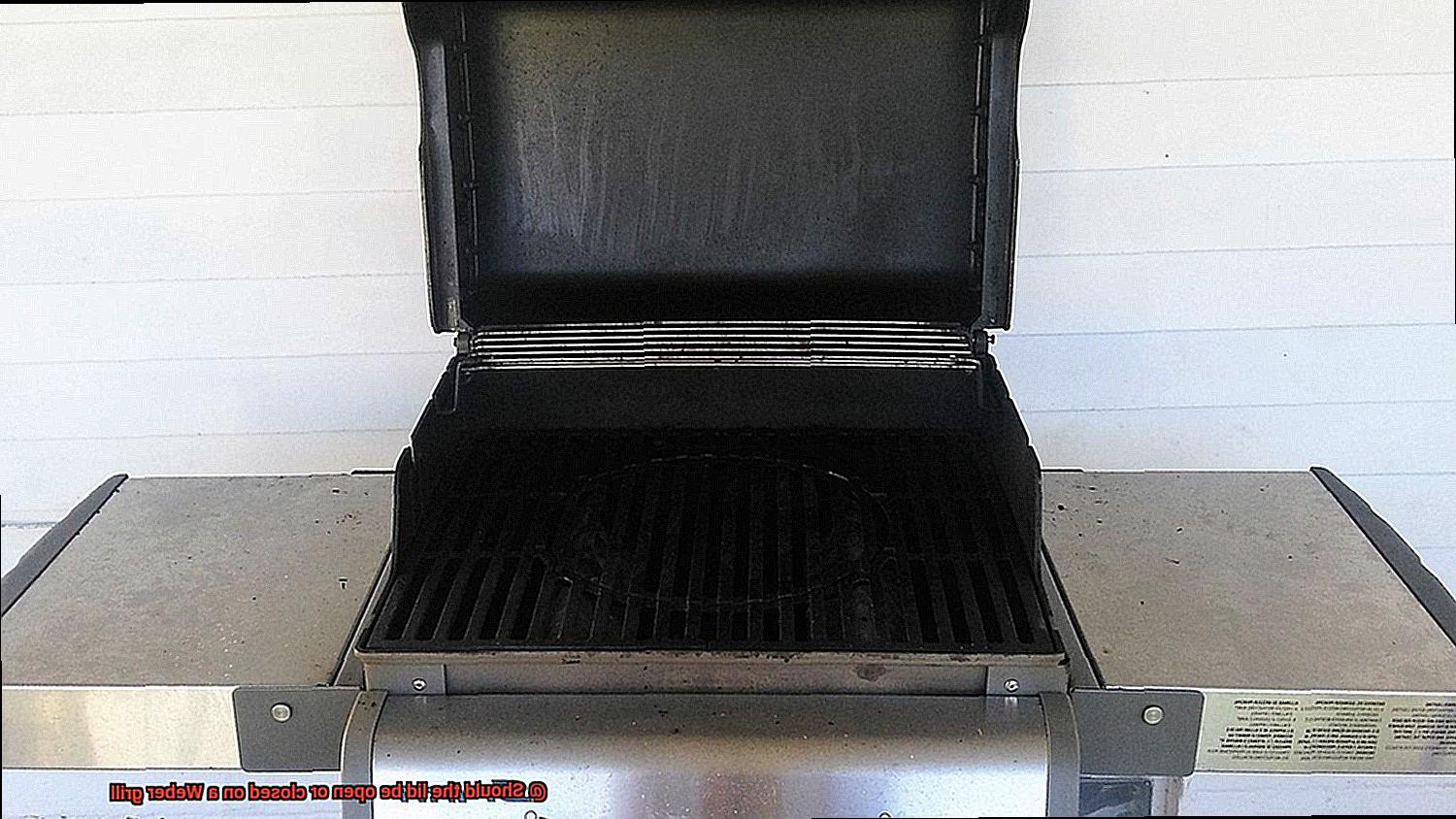
There are numerous benefits to be gained by keeping the lid closed.
One of the most significant advantages of keeping the lid closed is that it helps to regulate the grill’s temperature. By trapping in heat, the grill will maintain a steady temperature that is ideal for cooking a wide range of foods. This is particularly important when grilling thicker cuts of meat such as steaks or pork chops, as heat will circulate evenly around the food to prevent burning on the outside while ensuring that it cooks through thoroughly.
In addition to temperature regulation, keeping the lid closed also helps to lock in moisture. When food is cooked with the lid open, moisture can escape through steam, leading to dry and tough food. Conversely, by keeping the lid closed, moisture will be trapped inside and will circulate around the food, making it juicy and tender.
Another crucial benefit of keeping the lid closed is that it helps to infuse food with a smoky flavor. The use of wood chips or charcoal as fuel sources creates smoke that imparts a rich and smoky flavor to food when trapped inside by a closed lid.
Exceptions to Keeping the Lid Open or Closed on a Weber Grill
Grilling is an art that requires a bit of finesse and experimentation. When it comes to grilling on a Weber grill, the age-old question arises – should you keep the lid open or closed? While there are general guidelines to follow, there are some exceptions to consider that can make all the difference in your grilling game.
Let’s start with an exception to keeping the lid closed – indirect heat. This method involves placing the food away from the direct heat source, which allows for slower and more even cooking. When using indirect heat, it’s crucial to keep the lid open to prevent the temperature from rising too high and burning the food. This method is commonly used for foods like ribs or whole chickens, giving you perfectly cooked meat every time.
On the flip side, cooking with high heat requires an exception to keeping the lid open. High heat cooking is typically used for foods that require a quick sear or char, like steaks or burgers. In this case, it’s best to keep the lid open to allow for maximum airflow and heat circulation. Keeping the lid open will help achieve a nice crust on the outside while keeping the inside juicy and tender.
Now let’s talk about an exception to keeping the lid open – smoking meats. When smoking meats, it’s crucial to keep the lid closed to maintain a consistent temperature and smoke level. This allows for slow and even cooking, ensuring that your meat absorbs as much smoke flavor as possible. So, next time you’re smoking meat on your Weber grill, keep that lid closed and let the magic happen.
Lastly, when cooking foods that are prone to drying out quickly, such as fish or vegetables, it’s important to keep the lid closed. This helps retain moisture and prevents the food from becoming dry or overcooked. By keeping the lid closed, you’ll ensure that your fish or vegetables are cooked perfectly and packed with flavor.
yQ4AnlSJ-Gw” >
Conclusion
In conclusion, the age-old debate of whether to keep the lid open or closed on a Weber grill is one that has been raging on for years. But fear not, fellow grillers. The answer ultimately depends on what you’re cooking and your personal preference.
For those quick-cooking items like burgers or steaks that require high heat, leave the lid open to prevent overcooking or burning. But if you’re cooking something that requires longer cooking time and lower heat, such as ribs or brisket, then close that lid. By doing so, you’ll ensure even heat distribution and smoke circulation throughout the cooking chamber.
When deciding whether to keep the lid open or closed, there are several factors to consider: what you’re cooking, temperature of your grill, wind conditions, and personal preference. And don’t forget about exceptions depending on your chosen method of cooking.
Grilling on a Weber grill is an art form that requires attention to detail and experimentation. Understanding how the lid affects your grill’s temperature and airflow is key to achieving perfectly grilled meats and vegetables every time.

